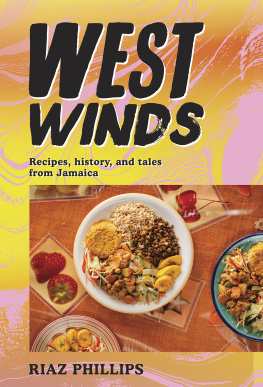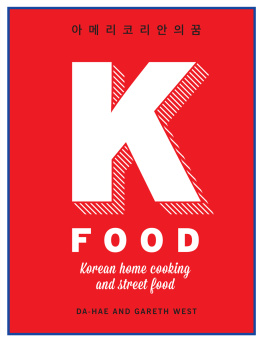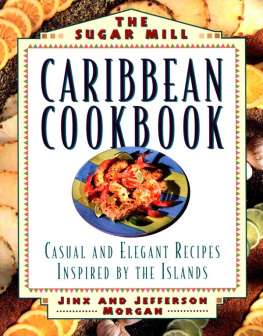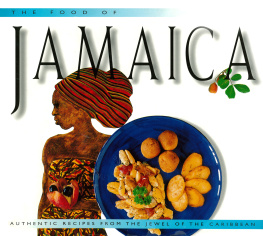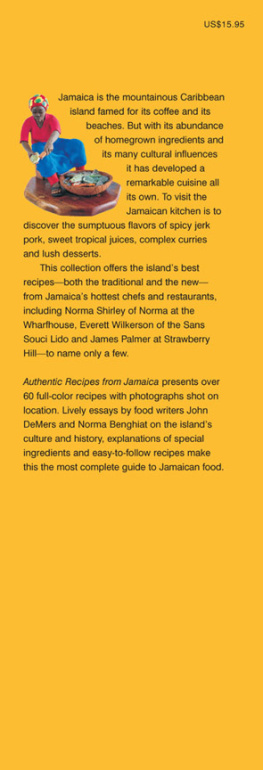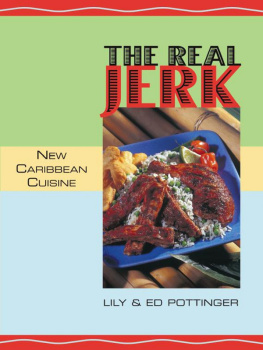Riaz Phillips - West Winds: Recipes, History and Tales from Jamaica
Here you can read online Riaz Phillips - West Winds: Recipes, History and Tales from Jamaica full text of the book (entire story) in english for free. Download pdf and epub, get meaning, cover and reviews about this ebook. year: 2022, publisher: DK, genre: Home and family. Description of the work, (preface) as well as reviews are available. Best literature library LitArk.com created for fans of good reading and offers a wide selection of genres:
Romance novel
Science fiction
Adventure
Detective
Science
History
Home and family
Prose
Art
Politics
Computer
Non-fiction
Religion
Business
Children
Humor
Choose a favorite category and find really read worthwhile books. Enjoy immersion in the world of imagination, feel the emotions of the characters or learn something new for yourself, make an fascinating discovery.
- Book:West Winds: Recipes, History and Tales from Jamaica
- Author:
- Publisher:DK
- Genre:
- Year:2022
- Rating:5 / 5
- Favourites:Add to favourites
- Your mark:
West Winds: Recipes, History and Tales from Jamaica: summary, description and annotation
We offer to read an annotation, description, summary or preface (depends on what the author of the book "West Winds: Recipes, History and Tales from Jamaica" wrote himself). If you haven't found the necessary information about the book — write in the comments, we will try to find it.
A beautiful cookbook that celebrates the wonderfully diverse flavors in Caribbean cooking with over 100 riveting recipes to try.
Introducing West Winds - a joyous celebration of Caribbean cooking, with a special focus on the sensational flavors of Jamaican cuisine. Winner of the Jane Grigson Trust Award 2022, the all-encompassing Caribbean cookbook West Winds introduces everyone, everywhere to the enriching and mouth-watering flavors that Jamaica has to offer.
Growing up in London and now living in Berlin, food writer Riaz Phillips is passionate about celebrating the familiar Caribbean food of his childhood while also demystifying new and unknown ingredients for home cooks from around the globe. With 120 traditional and delicious dishes that draw on Riazs personal memories, West Winds is so much more than a showcase of Jamaican cooking, it is also rooted in the exploration of the islands heritage and culture. Featuring colorful and sun-drenched imagery, and easy-to-follow instructions, the versatility of Jamaican cuisine is apparent.
Riaz blends authentic Jamaican ingredients and dishes with popular trends - discover recipes for nose-to-tail and vegan cooking. Why not also recreate popular takeaway food, Oxtail and Butterbean, or feel as though youre on the beach with a Langoustine Soup. This cookbook has everything - main meals, sauces, soups, juices and preserves, bakes and desserts.
Explore the riveting recipes of this colorful cookbook to find:
- A varied collection of 100 Caribbean easy-to-follow recipes written by Riaz Phillips
- Captivating recipe and travel photography
- Feature essays which capture the history and culture of the food
So whether you seek connection with your heritage,or youre simply looking to expand your culinary repertoire, take a trip to Jamaica with West Winds, proving the ideal cookbook for those with an interest in Caribbean flavors, cooking and culture, or doubling up as the perfect gift for chefs who are looking to experiment with new flavors. Read it, cook from it, immerse yourself in it and more!
Riaz Phillips: author's other books
Who wrote West Winds: Recipes, History and Tales from Jamaica? Find out the surname, the name of the author of the book and a list of all author's works by series.

